Marina Pugh (B.A. ’20) uses professional and volunteer experience to enhance political campaign operations
Oct. 17, 2025
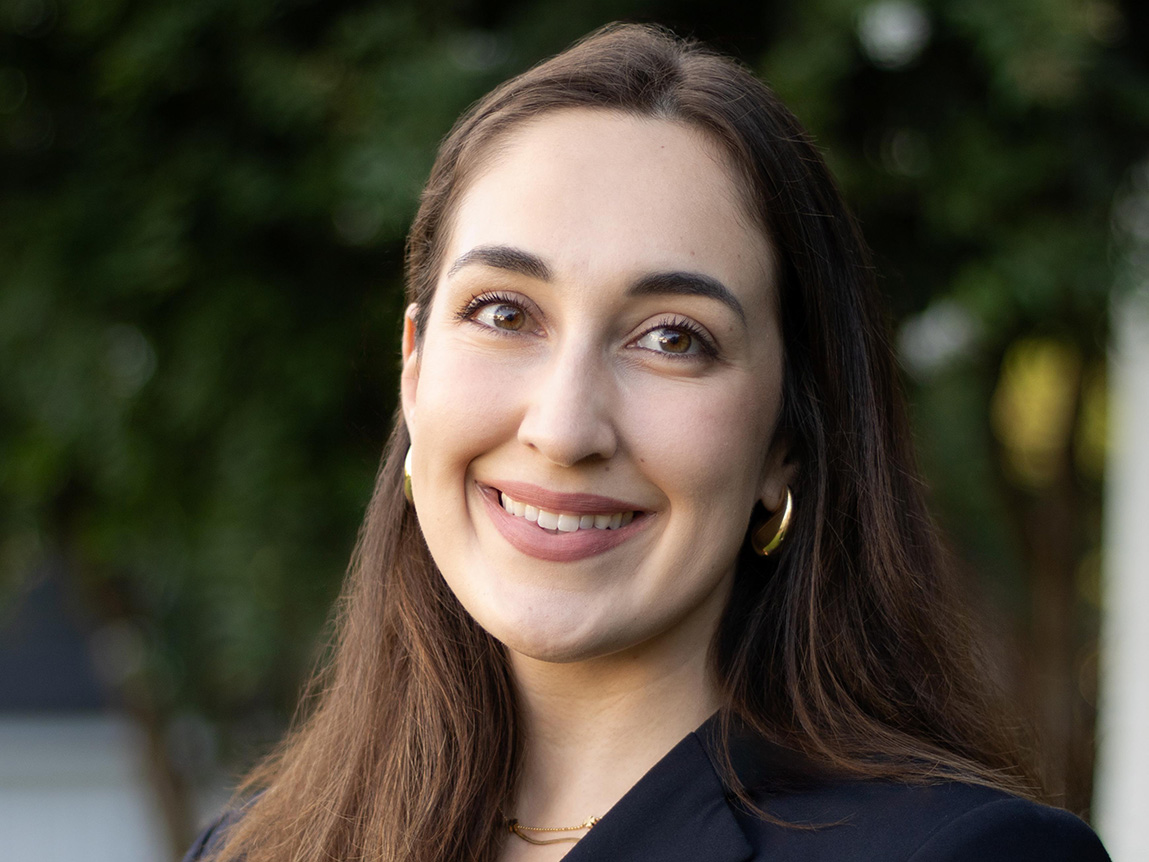
Marina Pugh (B.A. ’20) has managed to fit in a lifetime’s worth of experiences since graduating in 2020 from VCU. The international studies and philosophy major combined her interests in global politics and law to launch a career that took her around the world and back.
Pugh’s professional career began in politics in the Commonwealth, but, within a year, the COVID-19 pandemic was in full swing. Pugh, as chief of staff for Delegate David Reid, and her team of staffers, rose to the heightened degree of challenge to personally connect with constituents while maintaining social distancing. She then served in the Peace Corps in Kosovo as part of the first cohort to return to the Balkan region after the pandemic. Stationed in Mitrovica, a city figuratively and literally divided in half by culture, religion, and centuries of ethnic conflict, she connected with and aided both the Serbian and Albanian people.
Pugh is currently serving as the chief operating officer for Invicta, a start-up software company designed by political campaign staffers to better organize and assist the day-to-day work on political campaigns. She is also pursuing a law degree so as to be a resource for her community, taking inspiration from her great gandmother who survived the Armenian genocide and her family who persisted through the turmoil of the Soviet Union’s collapse. Read on to learn more about Marina.
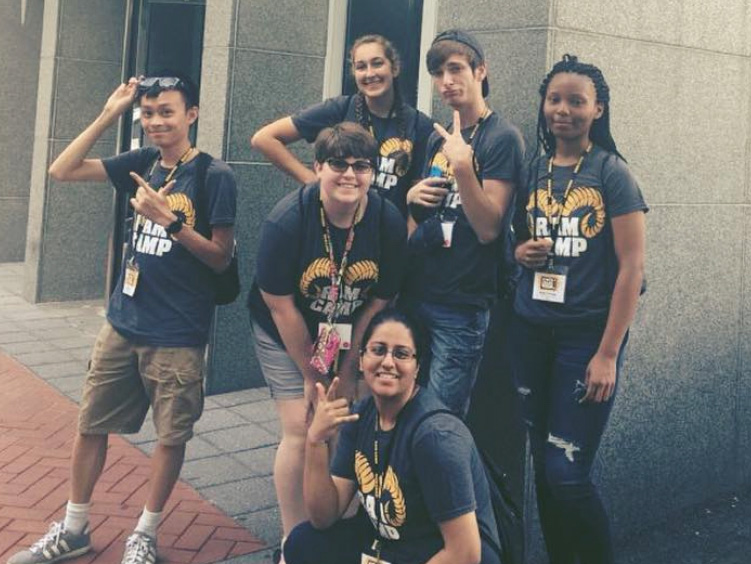 What drew you to VCU?
What drew you to VCU?
I never expected to go to VCU. I was in a medical program in middle school and high school where every morning my junior year, I would wear scrubs and go work on cadavers. It was very intense.
My senior year was very pivotal for me in high school. The 2016 election was going on, and I just fell in love with studying government. I was taking AP government at the time, got involved with political campaigns, and was very passionate about seeing change in my community.
My mom is an immigrant from the former Soviet Union, so I was always fascinated by world studies. My family is Armenian; my great grandmother survived the Armenian Genocide. She was one of the only people in her family to have survived, and hearing the stories of her life in the Soviet Union and how my family had to rebuild really just shaped my heart for justice.
What did the School of World Studies and the international studies program teach you?
The development components of the international studies curriculum really equipped me to go out and do Peace Corps service. Even community service, when you're working with populations in need, the faculty taught us all the hard skills, like grant writing, which really were fruitful later on. I think the way the faculty taught helped me grasp empathy for parts of the world we don't understand. The fact that we talked about [international communities] was really eye opening as a student. Just understanding how history has generational impacts on people.
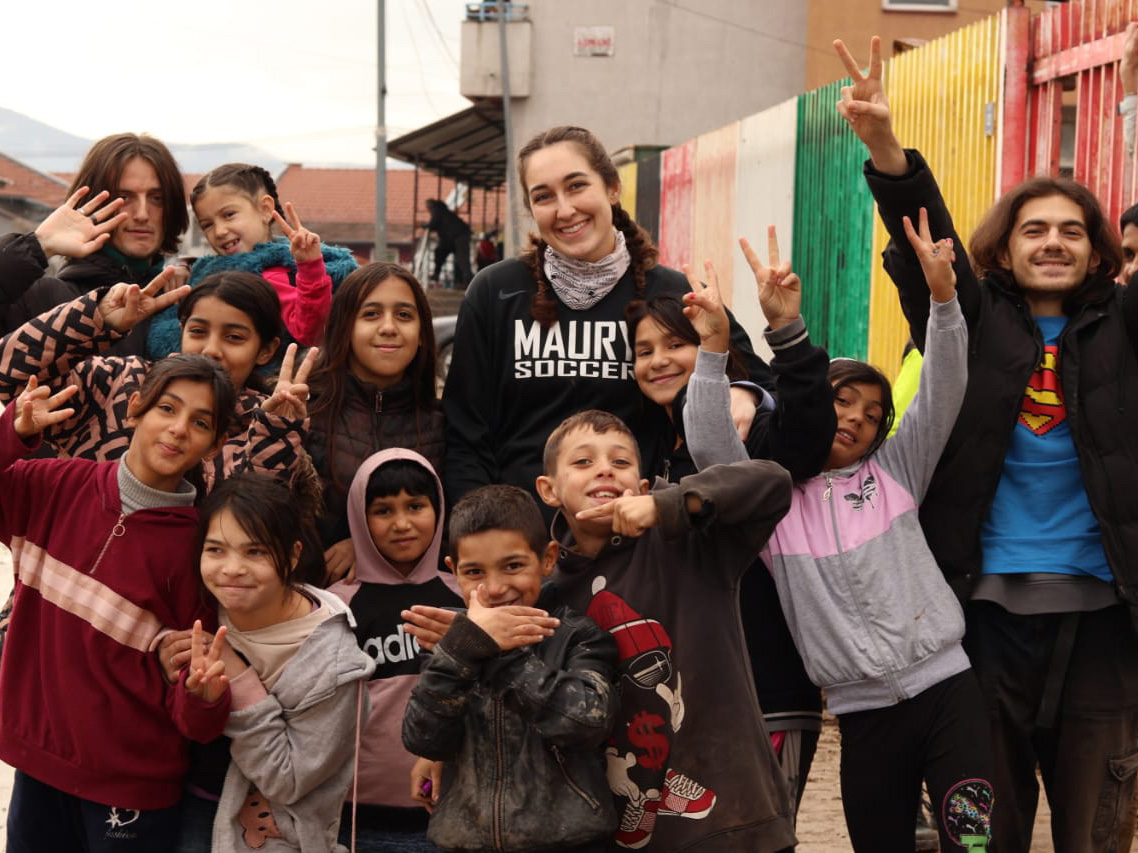 All of the things I did after college, even in legislation, I can say how you reach out to people, matters. Even in Virginia alone—like people in Appalachia come from a totally different cultural background than people in Virginia Beach—understanding the unique needs of different places is so important. We don't think about that enough as Americans. We just think cultures are predominantly based on race, but there are so many layers that exist there, social layers, economic layers, and historical layers.
All of the things I did after college, even in legislation, I can say how you reach out to people, matters. Even in Virginia alone—like people in Appalachia come from a totally different cultural background than people in Virginia Beach—understanding the unique needs of different places is so important. We don't think about that enough as Americans. We just think cultures are predominantly based on race, but there are so many layers that exist there, social layers, economic layers, and historical layers.
What made you interested in also studying philosophy?
I wanted to learn how to argue too. The Department of Philosophy at VCU was phenomenal. They took such an interest in me as a student. I just loved my philosophy classes so much. They taught me how to think critically on a whole other level. I loved it.
What was it like to participate in the study abroad program, and, more specifically, to study abroad in Russia?
There's so much that I grapple with, having a mom who grew up in Russia – though we're ethnically Armenian – and she grew up in a very tumultuous region, very close to Chechnya in the northern Caucasus Mountains. I'd spent a few summers in Russia already, and I grew up speaking Russian.
I went with the intention of researching socioeconomic transitions from communism to capitalism. I look back and I laugh because that is such a difficult feat to try to figure out. I would interview and just talk to people. I decided to tack on my study abroad, which I think lasted just over a month with one of the top universities in Russia. It was kind of a dream at the time.
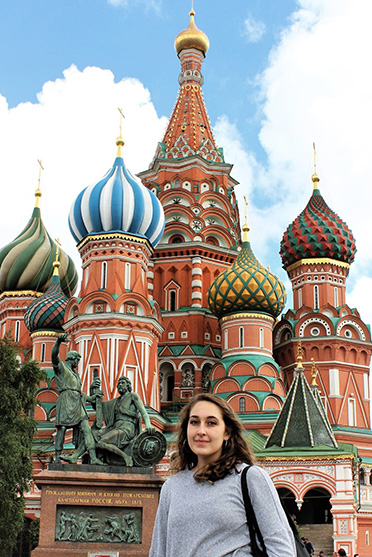 I got this really neat inside perspective of Russian domestic politics. It opened my eyes to how vast and big Russia is. Authoritarianism, even with the celebrations of the World Cup, was still kind of looming. Those discussions varied in the regions that I went to.
I got this really neat inside perspective of Russian domestic politics. It opened my eyes to how vast and big Russia is. Authoritarianism, even with the celebrations of the World Cup, was still kind of looming. Those discussions varied in the regions that I went to.
It was such a liberating experience to travel and navigate a foreign country on my own. But I felt like I was cheating in a way because I did have an Eastern European upbringing, and I knew Russian already. I felt like I was at home being back abroad in some ways. I have a few relatives in Russia, and that was the last time I was able to go to Russia because of the war, which breaks my heart. It was a really special time for me, just knowing that it's probably one of the last times I'll be able to go back for the foreseeable future.
You began your career working alongside state government officials. What was that experience like?
It was always a goal to get onto the official side and do the actual work of writing policy, working with stakeholders, and seeing what Virginians needed. I got my start on Governor Ralph Northam's campaign, which I interned on for a year. I then served as the communications manager for Senator Scott Surovell before working as the chief of staff for Delegate David Reid who continues to be a phenomenal mentor to me.
My favorite aspect probably was working on legislation and watching it come into law. One bill I can highlight that I got to work on was the Enslaved Ancestors Scholarship Program, which provides full ride scholarships for descendants of an enslaved individual who contributed to the building of specific universities in Virginia. The bill was labeled as one of the first reparations bills to successfully pass in the United States, and these scholarships have been really successful at all of the schools.
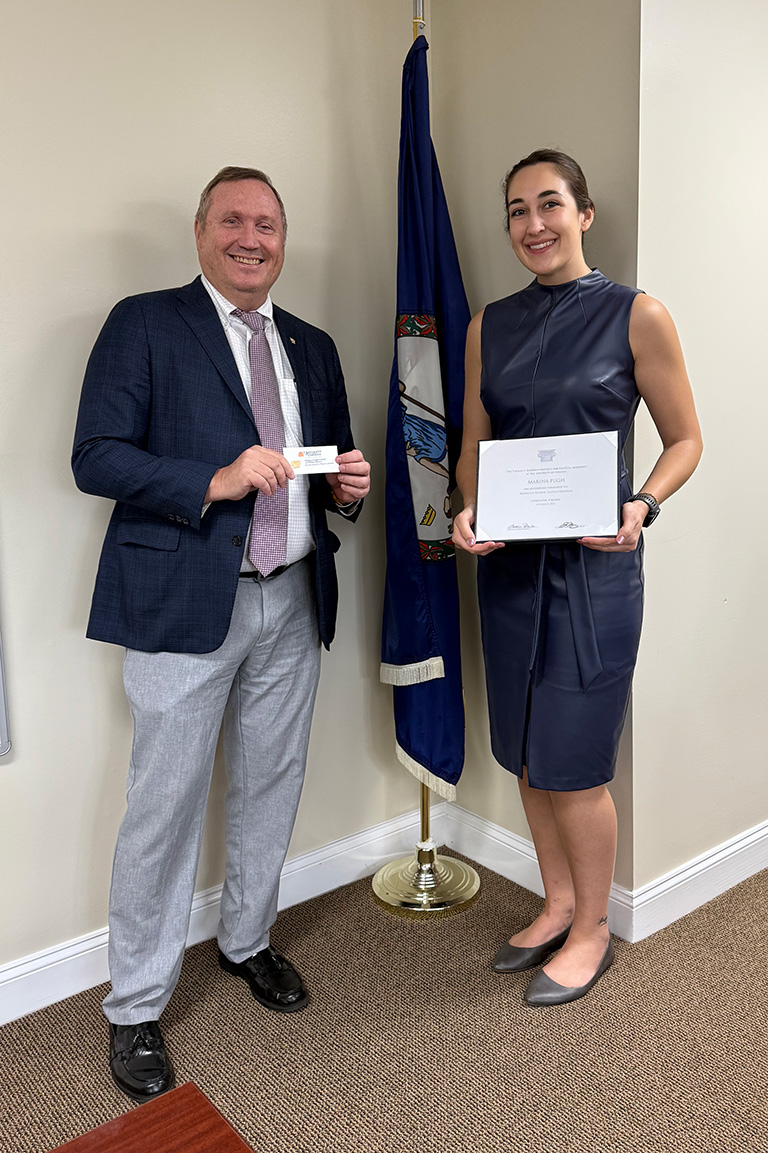 My position in communications primed me for constituent relations and connecting with people who are trying to work with the government to get their issues resolved, and also making sure you're being timely with communicating to the press and creating spaces for constituents to meet your member in town halls, public hearings, and things like that.
My position in communications primed me for constituent relations and connecting with people who are trying to work with the government to get their issues resolved, and also making sure you're being timely with communicating to the press and creating spaces for constituents to meet your member in town halls, public hearings, and things like that.
That laid the groundwork for my role as chief of staff for Delegate Reid, which has a lot more pressure and a lot more responsibilities, including managing an office and people. We worked year-round on constituent cases, creating legislation for the next General Assembly session. That is where I really learned the nitty gritty of policymaking, and I had way more involvement in that. There were some bills that it was totally my responsibility to work with the stakeholders and prep my member for session.
Delegate Reid was active in all the meetings we had with constituents, and we made a huge difference in these people's lives just by being attentive. When COVID hit, it was especially hard juggling a lot of unemployment cases. Being able to help constituents in the ways we did saved people from life-altering financial situations where they just couldn't afford to pay rent anymore. I still have printed letters from people thanking us.
Following the COVID-related delay to joining the Peace Corps, you were finally able to join a cohort that went to Kosovo. During your time there, what were some of the projects that you worked on?
I had a very unique Peace Corps experience. There were 18 of us at the start to go back and reestablish the Peace Corps after COVID. There were no volunteers above us who were wrapping up service that we could lean on. There were new staffers on the ground, so we had a very unusual training because COVID was still a concern.
We trained between hotels in different cities and isolated spaces. We didn't have host families, and it was really hard to get host families after the pandemic. You have to earn a lot of trust with people to get them to commit to a volunteer for two years. I was placed in a very small group in training where I had to learn to speak both Serbian and Albanian.
After the fall of Yugoslavia, you have ethnic fragments. Kosovo is very much like that still, that's why it's a disputed territory and a conflict zone because it still borders Serbia. There's a Serbian population there that doesn't recognize the government of Kosovo. So it was all these things I was learning along the way. I was thrilled that I got to learn both languages so I could reach more people.
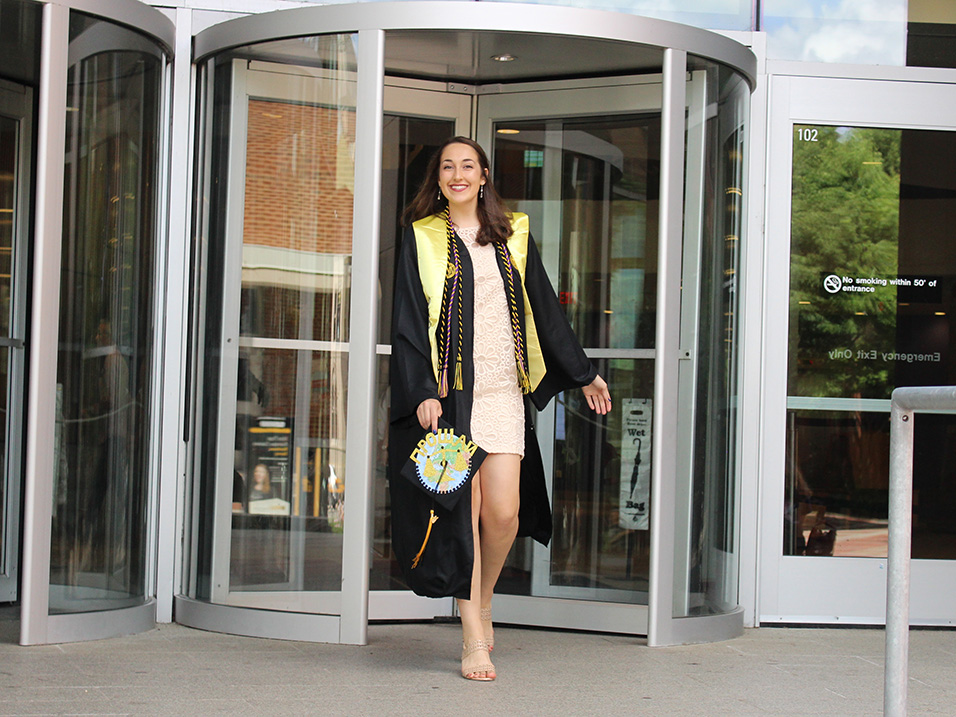 By the end of training, they tell you where you're going to in the country, you don't pick. I learned that I'd done really well in training; I grasped the languages pretty well. They were sending me to the northernmost site, which was deep in a conflict zone. I lived in an ethnically divided city, where I got to work with Serbians and Albanians, which was not the case for any other volunteers in my cohort.
By the end of training, they tell you where you're going to in the country, you don't pick. I learned that I'd done really well in training; I grasped the languages pretty well. They were sending me to the northernmost site, which was deep in a conflict zone. I lived in an ethnically divided city, where I got to work with Serbians and Albanians, which was not the case for any other volunteers in my cohort.
I was assigned to a USAID project with an NGO. I worked in ethnic reconciliation, peace building, and helping the organization with capacity building and grant writing. We worked with missions like NATO and the United Nations because there was an active NATO mission on the ground. Supporting the organization and executing well and imparting new skills to people was a big part of my day-to-day job.
Tell me about Invicta, a software that's built by campaign staffers for campaign staffers. What was the inspiration for transitioning into this role?
I co-own Invicta alongside Brenna Crombie, a campaign manager I worked with who became a really good friend. We worked so well together. We were highly efficient and we made such a good team.
Campaigns currently exist on spreadsheets, docs, and text message threads. There's no formal system for how to manage these things, so they're exhausting. The work is thankless, and it's so hard to stay on top of all the tight turnarounds that happen on races because everything's so finite. Keeping up with the speed that campaigns demand, no amount of group chats will ever be able to function or help a campaign team function. Brenna felt that it was time to bring her idea to life. She got some seed funding and said, ‘Marina, this is an idea I've had for years. Can you help me build it?’
So I have been invited in as the COO. We're very small. There's three of us. Brenna, me, and our CTO, who is a Ph.D. student at Harvard that helped us out on our campaign. Since January, we've been designing a system, building a business, building a company, doing a lot of legal things like taxes, and making sure we're building a sales platform.
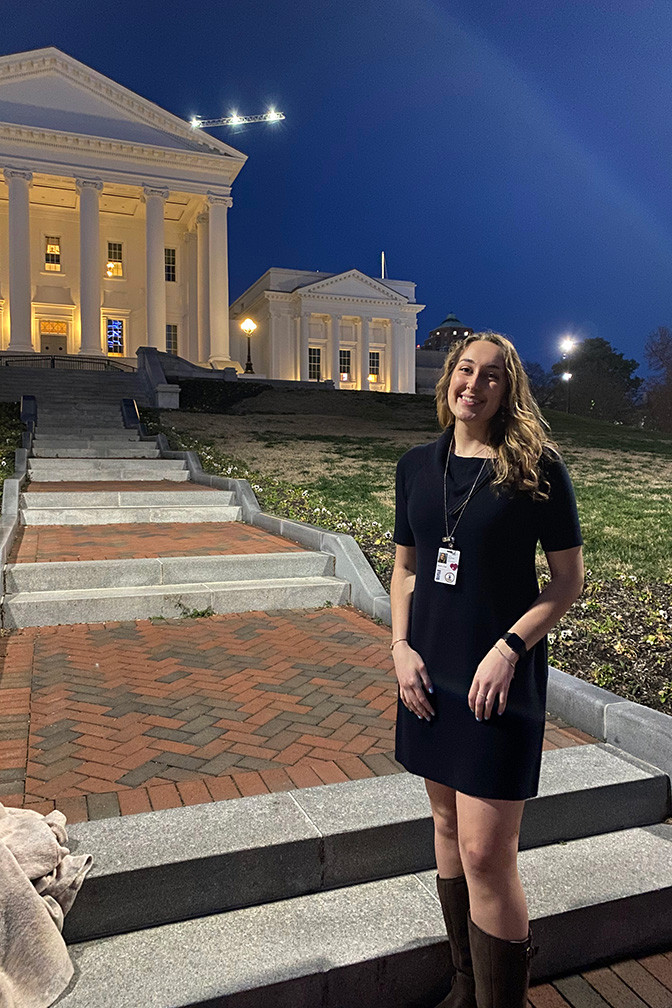 We officially launched our product for beta testing this summer with House races in Virginia because we want campaigns to function better. There's so much turnover in the industry because of the chaos. We lose good people. We lose that historic industry knowledge in that. We're trying to build a system that preserves this knowledge and helps democracy at large function better. When you have a better campaign, you're able to reach people more efficiently and you're able to take care of your staff and properly represent a candidate.
We officially launched our product for beta testing this summer with House races in Virginia because we want campaigns to function better. There's so much turnover in the industry because of the chaos. We lose good people. We lose that historic industry knowledge in that. We're trying to build a system that preserves this knowledge and helps democracy at large function better. When you have a better campaign, you're able to reach people more efficiently and you're able to take care of your staff and properly represent a candidate.
Lastly, if we can reflect back then on your time at VCU, how do you feel that your time on campus has prepared you to kind of accomplish what you have so far?
VCU was a launchpad on steroids for me. I think those experiences have lended greatly to all that I've done since graduating which has been a dream of mine. There's no slowing down in me.
A dream of mine is to come back and teach in some way at VCU after having the career I really want. I think the type of students that come to VCU are kids like me who came from immigrant households with not much, but they were able to take something that they learned in college and go out in the world and do something great. I'm not at all saying I'm doing great things, but I feel like I've been able to have such cool experiences because I got to live in Richmond and go to VCU.